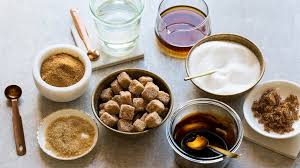Exploring the Definition
What is Sugar?
Sugar encompasses both naturally occurring sugar and free sugar. Naturally occurring sugar is found in fruits, vegetables, certain grains, and lactose in milk and dairy products. Free sugar, on the other hand, includes all monosaccharides and disaccharides added to foods and beverages by manufacturers, cooks, or consumers, as well as sugar naturally present in honey, syrups, fruit juices, and fruit juice concentrates.
Differentiating Between Types
Naturally Occurring Sugar
- Found in fruits, vegetables, some grains
- Includes lactose in milk and dairy products
- Provides essential nutrients and fiber
Free Sugar
- Added to foods and beverages
- Includes monosaccharides and disaccharides
- Found in processed foods, sweets, and sugary drinks
Impact on Health
Health Implications
- Excessive consumption linked to obesity and chronic diseases
- Can contribute to dental issues such as cavities and decay
- High intake may increase the risk of type 2 diabetes and cardiovascular diseases
Moderation is Key
- Recommended limits on daily sugar intake vary by age and sex
- Choosing whole, unprocessed foods can help reduce sugar intake
- Reading food labels can help identify hidden sugars in packaged products
Understanding the distinction between naturally occurring sugar and free sugar is essential for making informed dietary choices. While naturally occurring sugar provides nutrients and fiber, excessive consumption of free sugar can have detrimental effects on health. By moderating sugar intake and opting for whole foods, individuals can maintain a balanced diet and support overall well-being.




